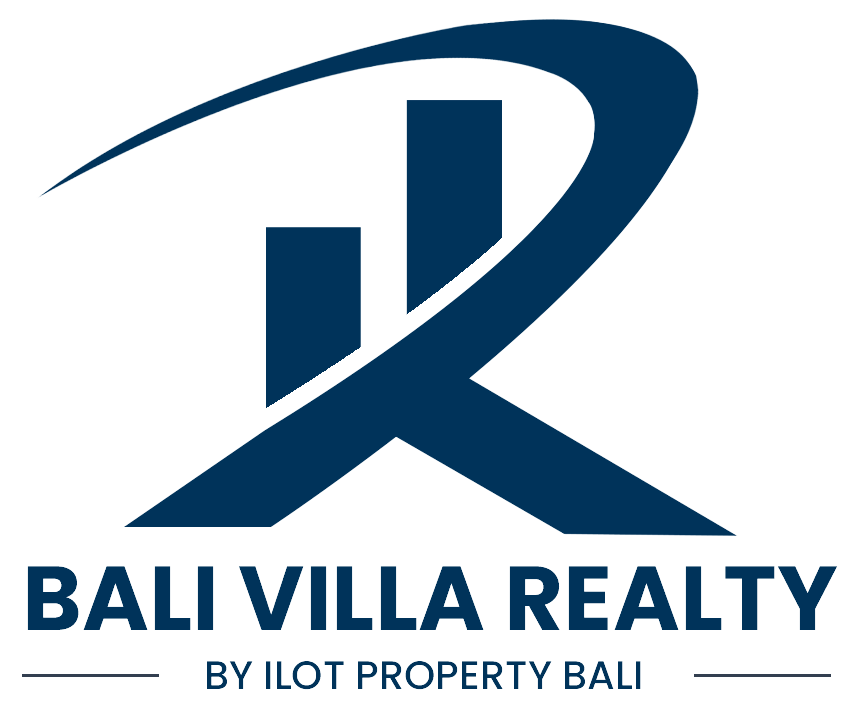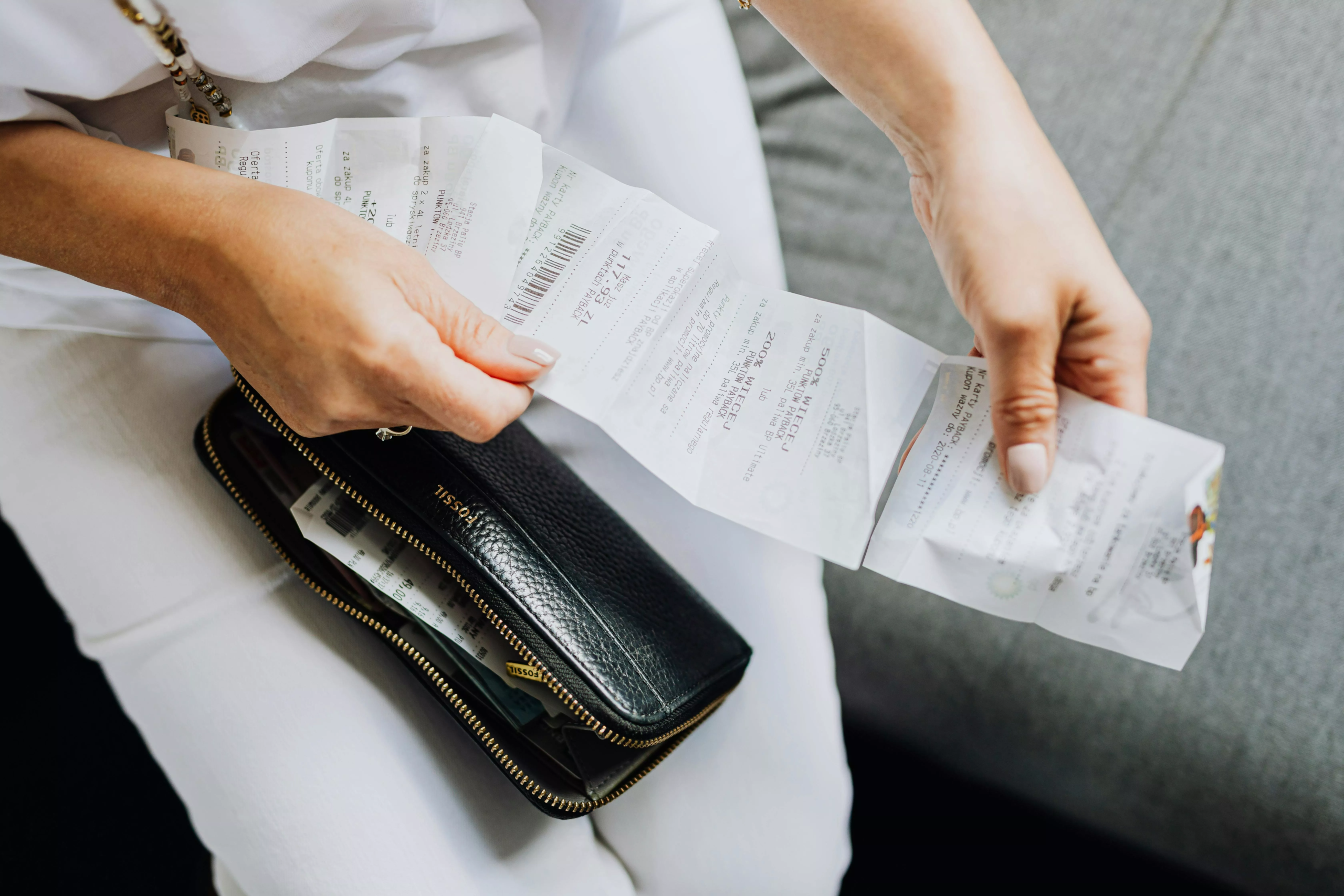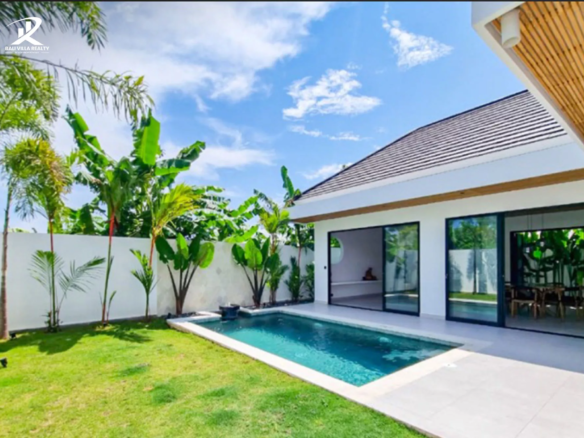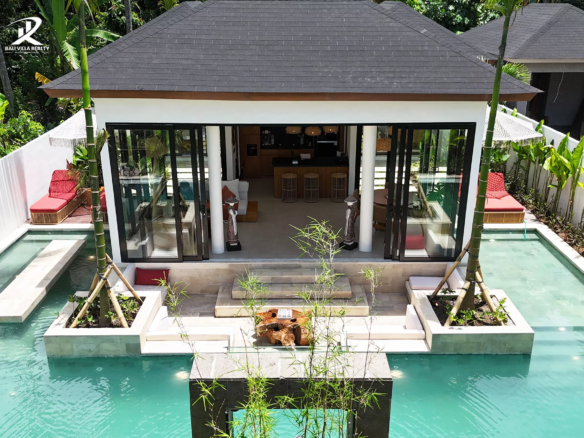Investing in your dream villa in Bali might be something you’ve been thinking about for a long time. Finding the perfect property is exciting, but once you do, the paperwork begins.
As a foreign investor, there are several important things to consider, especially when it comes to taxes.
In this article, we’ll guide you through everything you need to know about property taxes in Bali so you can plan confidently and avoid surprises along the way.
Key Takeaways
| Tax Type | Description | When It Applies | Typical Rate | Who Pays |
|---|---|---|---|---|
| Property Acquisition Tax (BPHTB) | One-time tax when property ownership changes hands | Before the notary signs the property transfer deed | 5% of property value (sale price or government-assessed value, whichever is higher) | Buyer |
| Annual Property Tax (PBB) | Recurring land and building tax based on assessed property value | Once a year within six months after SPPT is issued | 0.1%–0.5% of assessed value | Property owner |
| Property Transfer Tax (PPh) | Income tax on property sale | At the time of sale, before notary finalizes transaction | Freehold: 2.5%, Leasehold with NPWP: 10%, Foreign without NPWP: 20% | Seller |
| Income Tax on Rental Income | Tax on rental earnings | Annually, based on residency | Residents: 5%–35% progressive, Non-residents: 20% flat | Property owner (or lessor) |
| Value Added Tax (PPN) | Tax on new or off-plan properties from developers | When buying/leasing from developer | 11% of selling price | Buyer |
| Construction Tax | Tax on new building construction based on project cost | Upon building completion | 1.75%–6% of construction cost | Contractor or property owner (if self-built) |
| Luxury Property Tax (PPnBM) | Tax on high-value properties | For properties priced ≥ IDR 30 billion (~USD 2M) | 20% of sale value | Seller or developer |
| Name Change Tax (BBN) | Fee to register new owner on property certificate | During ownership transfer | (Land price per m² ÷ 1,000) × total land size | Buyer |

Why Is Property Tax Important?
Property taxes are a key part of owning real estate in Indonesia. They not only represent your legal responsibility as an owner but also help you avoid unexpected costs or legal issues later on.
Paying the correct taxes ensures that your ownership and investment are recognized by the government, which is essential for both security and compliance.
For investors, property taxes also affect your overall return on investment (ROI). Knowing how much you’ll pay annually and what other related taxes might apply (like rental income tax or land and building acquisition tax) helps you make smarter financial decisions from the start.
Get Your Free Bali Villa ROI Report
Learn real case study data and insights to help you maximize your investment returns in Bali.

Types of Property Taxes in Bali
When buying or owning property in Bali, several taxes will apply depending on your situation, whether you’re purchasing, renting out, or simply holding the property.
1. Property Acquisition Tax (Bea Perolehan Hak atas Tanah dan Bangunan or BPHTB)
When you buy property in Bali, you’ll need to pay a property transfer tax (also called the "transfer tax"). This is a one-time tax paid when the property ownership changes hands.
- Rate: 5% of the property’s value — either the sale price or the government’s assessed value, whichever is higher.
- Who pays: The buyer, once during the transaction process.
- When to pay: Before the notary signs the property transfer deed.
Calculating Property Acquisition Tax
Formula: BPHTB = 5% × (NPOP – NPOPTKP)
NPOP (Nilai Perolehan Objek Pajak) refers to the tax object acquisition value, while NPOPTKP (Nilai Perolehan Objek Pajak Tidak Kena Pajak) is the non-taxable allowance. The minimum amount is set at IDR 60 million.
For example, if your your villa costs IDR 5 billion, then your BPHTB = 5% × (5 billion – 60 million) = IDR 247 million.
2. Annual Property Tax (Pajak Bumi dan Bangunan or PBB)
When you own property in Bali, you’ll need to pay an annual property tax (or, "Land and Building Tax"). This tax applies to all property owners in Indonesia and is based on the assessed value of your land and building.
- Rate: Typically between 0.1% and 0.5% of the property’s assessed value, depending on local government regulations.
- Who pays: The property owner. You can pay it at local banks, post offices, or online via government payment portals.
- When to pay: Once a year within six months after the tax bill (SPPT) is issued by the tax office.
Calculating Annual Property Tax
Formula: PBB = 0.5% × NJKP
To calculate your PBB, you need two main values:
- NJKP = 40% × (NJOP – NJOPTKP) for properties above IDR 1 billion
- NJKP = 20% × (NJOP – NJOPTKP) for properties below IDR 1 billion
- NJOPTKP = is IDR 12 million ($732)
NJOP (Nilai Jual Objek Pajak) is the government-assessed market value of the property. This value is determined by the local tax office, not by the actual market price or sale value. NJKP (Nilai Jual Kena Pajak) refers to the taxable portion of that assessed value.
For example, let’s say your villa has an NJOP value of IDR 5 billion.
- NJKP = 40% × (IDR 5,000,000,000 – IDR 12,000,000)
= IDR 1,99 billion
Now your PBB tax can be calculated as follows:
- NJKP = 40% x (IDR 5,000,000,000 - IDR 12,000,000) = IDR 1,99 billion (IDR 1,995,200,000)
- PBB = 0.5% x IDR 1,995,200,000 = IDR 9.9 million (USD $595)
3. Property Transfer Tax (Pajak Penghasilan or PPH)
When you sell freehold property in Bali, you’ll need to pay an income tax called PPh (Pajak Penghasilan). This tax applies to the seller and is based on the declared value stated in the Sales Deed (Akta Jual Beli / AJB)
- Rate:
- Freehold property: 2.5% of the declared sale value.
- Leasehold property: 10% of the declared value if the seller has an Indonesian tax number (NPWP).
- Foreign sellers without NPWP: 20% of the declared value.
- Who pays: The seller (owner) of the property.
- When to pay: Paid at the time of the sale, before the notary finalizes the transaction.
It's important to note that PPh is a final income tax. This means once you pay it, the income from that sale is considered fully taxed—it won’t be charged again when filing your annual tax report.
If you’re a foreign tax resident in a country with a double tax treaty with Indonesia, you can credit this payment when filing your income tax in your home country.
Calculating Property Transfer Tax
Formula: PPh = Sale Price × 2.5%
For example, when you sell your villa for IDR 5 billion → PPh = 5 billion × 2.5% = IDR 125 million.
4. Income Tax on Rental Income
If you rent out your property, you will need to pay income tax on your earnings. The rate and process can vary based on your residency status:
For Indonesian Tax Residents:
- Taxed on a progressive scale (5%–35%) based on total annual income. The tax is called Personal Income Tax (Pajak Penghasilan Orang Pribadi).
- You’re a resident if you stay over 183 days per year in Indonesia or have a permanent intention to live here.
| Income Range (IDR) | Tax Rate |
|---|---|
| Up to 60,000,000 | 5% |
| 60,000,001 – 250,000,000 | 15% |
| 250,000,001 – 500,000,000 | 25% |
| 500,000,001 – 5,000,000,000 | 30% |
| Over 5,000,000,000 | 35% |
For Non-Residents:
- A flat 20% withholding tax (also known as "Rental Income Tax" or "Lease Tax") applies to gross rental income, unless reduced by a Double Tax Agreement (DTA) with your home country.
- If your country has a DTA with Indonesia, you may pay a lower rate and avoid double taxation on rental income.
| Withholding Tax Category | Tax Rate |
|---|---|
| Indonesian residents | 10% |
| Non-residents | 20% |
Keep in mind that if you do not have a permanent home in Indonesia, you still need to pay tax on income earned here.
Read More: Invest in Bali Guide: Get High ROI from Buying Property
5. Value Added Tax (VAT)
The Value Added Tax (VAT), known locally as Pajak Pertambahan Nilai (PPN), applies when purchasing or leasing property from a developer or company.
- Rate: 11% of the property’s selling price.
- Applies to: New or off-plan properties bought from developers or constructors.
- Does not apply to: Resale (used) properties or private individual sales.
Developers often include PPN in the total price. Verify this in your sales agreement at all times.
Calculating Value Added Tax
If you buying a new villa from a developer for IDR 5 billion → VAT = 11% × 5 billion = IDR 550 million.
6. Construction Tax (Pajak Konstruksi)
When a new building is completed in Bali, a Construction Tax applies. This tax is calculated based on the project’s construction budget, also known as the Rancangan Anggaran Biaya (RAB).
- Rate: Between 1.75% and 6% of the total construction cost, depending on how the project was carried out.
- Who pays:
- If a contractor handled the project, the contractor is responsible for paying the tax.
- If the construction was done privately (without a contractor), the property owner may be responsible.
- When to check: Always verify with the seller that this tax has been paid before buying a property. If it hasn’t, you could be charged later.
7. Luxury Property Tax (Pajak Penjualan atas Barang Mewah or PPnBM)
High-value properties in Bali may be subject to a Luxury Tax, known as PPnBM. This applies mainly to primary property sales such as villas, apartments, or townhouses.
- Rate: 20% of the property’s sale value.
- When it applies: For properties priced at IDR 30 billion or more (around USD 2 million, based on current rates).
- Who pays: The seller or developer at the time of the sale.
8. Name Change Tax (Bea Balik Nama / BBN)
When transferring ownership, there’s a small "Name Change Tax" to officially register the new owner’s name on the property certificate.
- Rate: Calculated using this formula = (Land price per square meter ÷ 1,000) × total land size (in m²)
- Who pays: The buyer when transferring the property title.
- When to pay: During the ownership transfer process, before the certificate is reissued.

Get a Customized Investment Plan in Bali
With over 15+ years in the market, here’s what we can do for you:
- Find the best location to invest in Bali.
- Reliable guidance on Bali’s property market and laws.
- Personalized strategy to maximize returns and meet your financial goals.
Can You Pay Property Taxes in Advance?
Yes, you can pay your annual property taxes ahead of the official due date. Early payment is common and encouraged by the government.
Paying early offers several benefits, too! It helps you avoid late payment penalties, prevents legal issues, and in some regions, the government even provides discounts or incentives.
For example, Jakarta offered a 7.5% reduction on PBB in 2025, while Gunungkidul held a lottery for early payers.
Read More: The 2 Permits Every Bali Villa Investor Needs to Stay Legal
Benefits of Having a Tax ID (NPWP) as Foreigners

The Nomor Pokok Wajib Pajak (NPWP) is your Indonesian Tax Identification Number, essential for managing taxes and property ownership legally. By having this ID, you’ll benefit from:
- Reduced withholding tax rates on certain income or transactions.
- Simplified property registration and tax compliance (for BPHTB, PBB, and PPh).
- Eligibility for longer leaseholds and smoother business operations through legal entities (e.g., PT PMA).
Foreign investors generally need a KITAS (Limited Stay Permit) or KITAP (Permanent Stay Permit) to apply for an NPWP. A local tax consultant can help handle the registration and reporting process.
Tips to Stay Compliant with Bali Property Taxes
- Keep all transaction receipts and official payment proofs.
- Pay on time, or late payment penalties can reach up to 2% per month.
- Consult a certified tax advisor before signing any agreement.
- Apply for an NPWP early if you plan to rent out or sell your property.
- Double-check developer pricing to ensure VAT and acquisition tax are clearly stated.
Conclusion
Understanding property taxes in Bali is an essential step before buying or investing in your dream villa. Each part plays a role in making your investment legitimate, secure, and future-proof.
While the process can seem complicated at first, especially for foreigners, the good news is you don’t have to handle it alone.
Our team at Bali Villa Realty is here to guide you through every step of your property journey—from choosing the right villa to managing all tax and legal requirements with complete transparency.
Interested in learning more or still have questions? Click the button below to book a free, no-obligation consultation with one of our expert agents at your convenience.
Want to start investing in Bali property?
Have a quick chat with our real estate experts for personalized advice on your Bali investments. No commitment required.
FAQ
Property tax rates are set by local governments and can change periodically based on regional regulations. While major changes are uncommon, rates such as PBB (0.1–0.5%) or BPHTB thresholds may be updated every few years. Always double-check the latest rates before finalizing a purchase.
Once your land or lease is registered, annual PBB taxes apply, even if construction isn’t finished; building taxes only start after completion and assessment.
Yes. Most regions in Bali allow online PBB payments via platforms like Pajak Online Indonesia using your NOP from the SPPT PBB bill, making compliance easy even from abroad.











